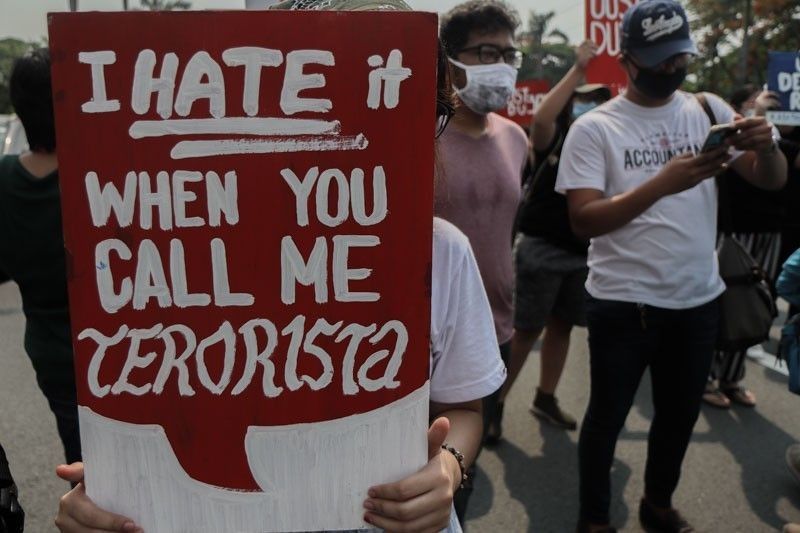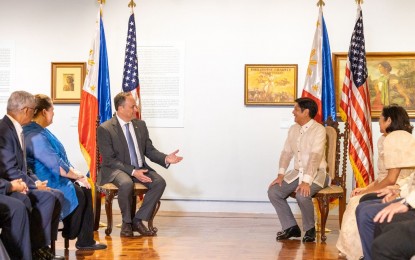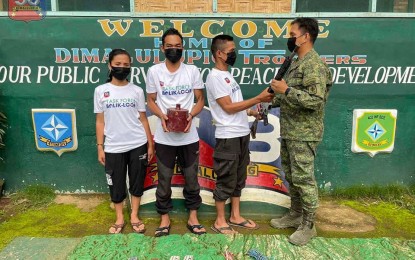Posted to the Philippine Daily Inquirer (Jul 3, 2022): Business, tourism booming as peace descends on Sulu (By: Julie S. Alipala)
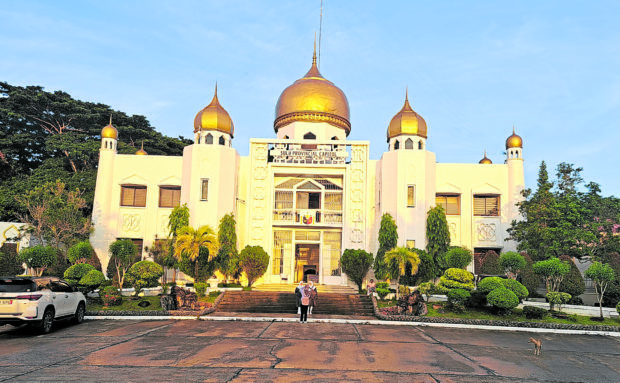 Sulu Provincial Capitol. (File photo by BONG S. SARMIENTO / Inquirer Mindanao)PATIKUL, Sulu, Philippines — An elderly man sits leisurely on a wooden bench near the entrance of Sharas, a restaurant offering fine dining in this town, his eyes, smiling as if showing contentment, glued to the wide, white sand coastline of Mauboh village.
Sulu Provincial Capitol. (File photo by BONG S. SARMIENTO / Inquirer Mindanao)PATIKUL, Sulu, Philippines — An elderly man sits leisurely on a wooden bench near the entrance of Sharas, a restaurant offering fine dining in this town, his eyes, smiling as if showing contentment, glued to the wide, white sand coastline of Mauboh village.
For Ismunlatif Suhuri, now 62, this is what peace means.
But it took determined leaders like Suhuri to stand up against banditry and terrorism before he and the rest of the townsfolk can savor the opportunity of sitting in an open space, unarmed, unescorted and enjoying the cool breeze of the beach.
Suhuri is no ordinary person in Patikul. He is known to the community as a fearless warrior who braved Patikul’s hinterlands to rescue kidnap victims, whether foreigners or locals, from the hands of Abu Sayyaf bandits.“I thought I would never be able to enjoy this situation in my lifetime. But here I am, just sitting away the time. It is now peaceful in our place, we already have nightlife,” Suhuri said. “When once people were afraid of our place, now they are coming to visit.”Suhuri frequents Sharas, which is run by his son, Ronnier, a 28-year-old pharmacist. “There are times you would see me assisting people to park their vehicles, or serve the customers’ orders,” he said.
Ronnier grew up away from Patikul, then a major hotbed of banditry and terrorism. At the age of 4, his siblings and his mother were forced to relocate to Zamboanga City so they can be spared from the violence.
They left his father and their uncles and aunts to manage their farm and other businesses. Besides, his father was also at the height of his political career, serving as mayor and later as Sulu provincial board member.
“I returned here a few years ago, after graduating from college,” Ronnier said. He has since been helping in running two restaurants in nearby Jolo town, Sulu’s capital, and another one here.
“Lucky for me, I never experienced what my old folks went through. I heard stories about my father’s bravery, how he stood firm for his people and to keep this town safe, although what I see is a doting father,” Ronnier said.
“We never imagined then that we can put up an open-air dining restaurant here in Patikul,” he added.
In the last six years, restaurants and cafés sprouted in the towns of Patikul, Talipao, Indanan and Jolo, indicating a victory in the long drawn out effort to build peace in the province.
Tourists began arriving, some from even as far as Luzon, for a taste of local cuisine, to experience the explosions of colors from native handicrafts as well as the splendid sunset and sunrise, savor the fruits in season, explore caves, and frolic on white sand beaches.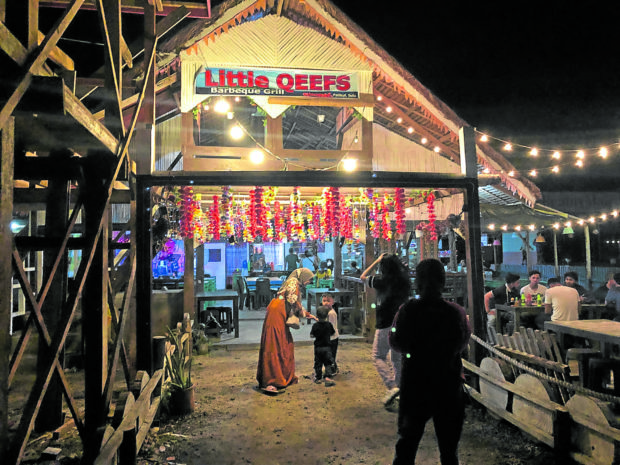 Restaurant in Patikul town. (Photo by JULIE S. ALIPALA / Inquirer Mindanao)
Restaurant in Patikul town. (Photo by JULIE S. ALIPALA / Inquirer Mindanao)
Multisectoral approachFormer presidential peace adviser Carlito Galvez Jr., who used to lead the military’s Western Mindanao Command, said the rise of the tourism industry in the provinces of Basilan, Sulu, and Tawi-Tawi was a testament to the success of the government’s peace-building efforts in the Bangsamoro region.During his time as a military officer, Galvez helped pioneer a multisectoral approach in dealing with the terrorism threat in Basilan, in cooperation with the then Autonomous Region in Muslim Mindanao under Gov. Mujiv Hataman, and nongovernment Balay Mindanaw Foundation Inc. The Program Against Violent Extremism for Peace would later become a general template in other areas.
Intensified drive against terrorists, especially after the Marawi siege in 2017, has led to Abu Sayyaf cells crumbling from lack of local community support. Since 2016, over 800 terrorists have surrendered to the military, said Maj. Gen. Ignatius Patrimonio, commander of the Army’s Joint Task Force Sulu.Pia Hayudini, a personnel of the Bureau of Jail Management and Penology, converted her property to a zen-inspired café offering Italian dishes and pastries, comparable to the classy ones from well-known pastry shops in Zamboanga City and Metro Manila.
“We started with cakes. All our pastries were delivered to [our clients’] doorsteps. We then experimented in putting up a café as I have brothers who are better cooks than [trained] chefs. To cut the story short, we never experienced a zero-customer day here; it’s always full, and our prices are affordable,” Hayudini said.
She said doing business in Sulu is great. “We don’t run short of customers, we only run short of some ingredients because some items have to be sourced out from other cities. But we can [make] do with what we have here, we have seafood and good quality beef,” she added.
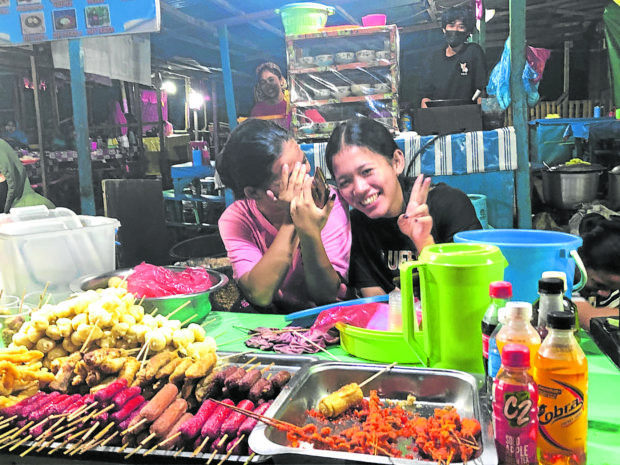 Taking advantage of an improved peace and order situation, many Sulu residents are dining out, generating demand for food shops, such as street food hubs, in the capital Jolo (Photo by JULIE S. ALIPALA / Inquirer Mindanao)
Taking advantage of an improved peace and order situation, many Sulu residents are dining out, generating demand for food shops, such as street food hubs, in the capital Jolo (Photo by JULIE S. ALIPALA / Inquirer Mindanao)Return to normalcy
Most of the dining establishments in Sulu are open as early as 8 a.m. and close at 10 p.m., a far cry from the situation a decade ago when nightfall brought people inside their homes for security reasons.
Street food hubs mushroomed all over Jolo town, driving a booming nightlife that was just an imagination for some street food vendors a decade ago.
Reihania Alam, a street food vendor, recalled the days when she opened at 3 p.m. and closed at 6 pm., and the safest where she could sell barbecue was near military or police camps. “By 5 p.m., we start to close shop and transfer nearby the Army and police camps. Even during the day, we are anxious about the possibility of being hit by roadside bombs,” she said.
Alam said they survived the Aug. 24, 2020, twin bombing in Jolo, because her children run short of ingredients for their barbecue sauce.
“Kung napaaga kami, damay kami dun sa mga kasama naming nagtitinda ng street food (Had we been there early, we would have suffered the same fate of of our fellow vendors),” Alam recalled, trying to hide the pain from remembering the grim incident.
They never expected that normalcy will return after the incident, especially when the local government of Jolo locked down some areas in the commercial center after the death of eight uniformed personnel (seven soldiers and a policeman) and six civilians.
Months after the explosion, Alam noticed a gradual increase in street vendors and customers.
Erwin Tan, the provincial administrator of Sulu, confirmed that a number of commercial establishments have sprouted in the province even before the pandemic.
“The pandemic reinforced our people’s drive to explore further to earn a living. What used to be a dead night here started having its own life,” Tan said.
Unique spots
The influx of people into food hubs first came from locals, then tourists from nearby provinces started flowing in, drawn by the unique destinations.
“What we can offer are untouched caves, white sand beaches and unadulterated food, meaning, fresh catch from the sea to the table, and it’s cheaper,” Tan said.
Soldiers, policemen and their officers usually lock themselves inside barracks and camps to prevent from becoming easy targets by local terrorists. But since the pandemic, “uniformed personnel explore the areas freely, they even have this bike run for 68 kilometers and they bring their families to enjoy a vacation here,” he said.
Hayudini observed that troops hardly go out in full battle gear now. “I am happy to see our generals, our colonels in casual attire, sometimes in shorts, with no escorts, enjoying our pasta and seafood. It was never like this for a long time,” she added.
Tan bragged about the pure white sand beaches of Sulu, especially in Luuk, Patikul, Maimbung and Parang, while the town centers of Jolo, Talipao, Patikul, Omar and Indanan are bustling day and night.
“We finally have a nightlife here. For me, as a young entrepreneur, this is one great indicator of a place as peaceful. We can go out and return home late at night. As a businessman, we value this business environment, so we must make sure to sustain this,” Ronnier said.
https://newsinfo.inquirer.net/1620725/business-tourism-booming-as-peace-descends-on-sulu






